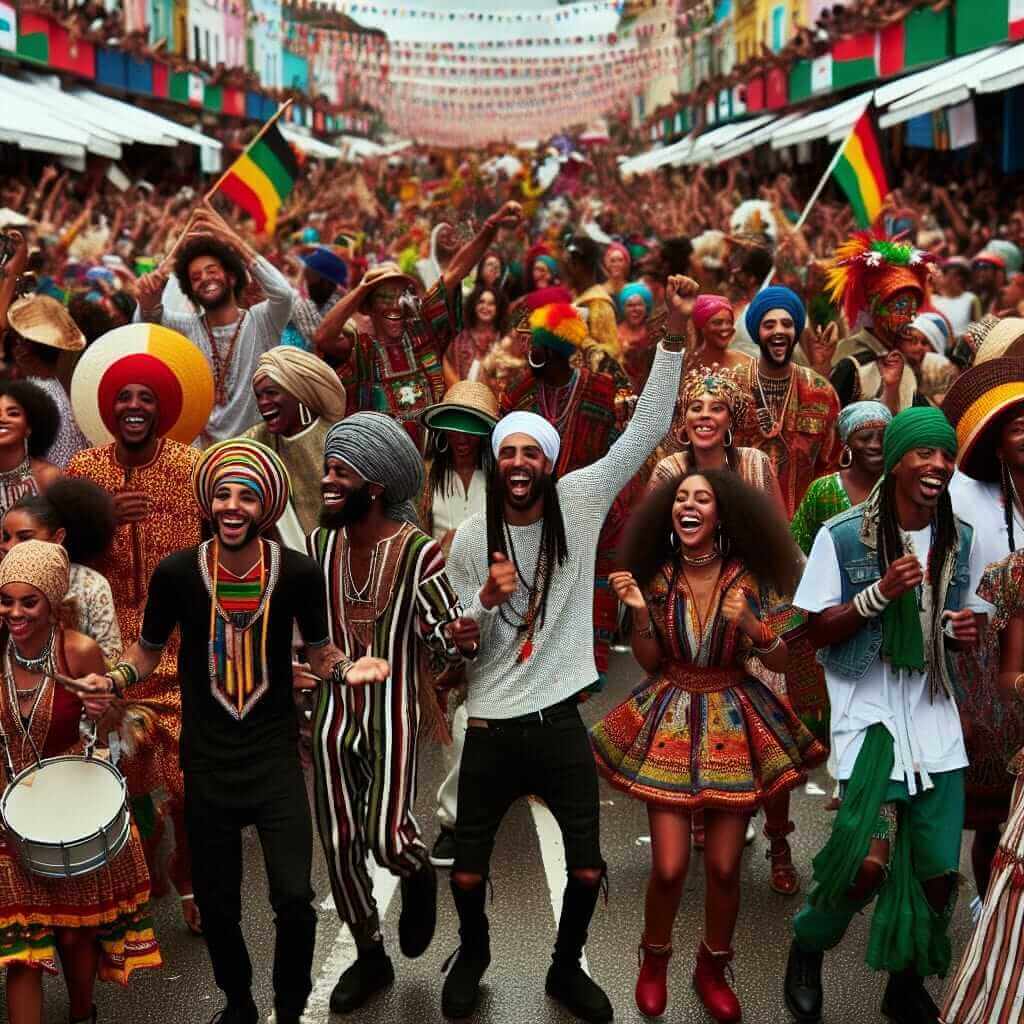The intersection of cultural festivals and social cohesion is a topic frequently explored in the IELTS Writing Task 2. This theme delves into the impact of cultural celebrations on strengthening community bonds and fostering a sense of belonging.
A deep dive into this subject requires understanding keywords and LSI keywords like:
- Cultural festivals: Carnivals, holidays, commemorations, festivities, celebrations
- Social cohesion: Community building, social harmony, solidarity, shared identity, unity
- Influence: Impact, effect, consequence, result
- Community: Society, neighborhood, populace
Common user queries related to this topic revolve around:
- How do cultural festivals promote social cohesion?
- Do cultural festivals help preserve traditions?
- Can cultural festivals bridge cultural divides?
- What is the role of cultural festivals in a globalized world?
IELTS Writing Task 2 Sample Question:
Many people believe that cultural festivals are important for preserving traditions and strengthening social cohesion. Others, however, argue that they are outdated and irrelevant in today’s globalized world. Discuss both views and give your opinion.
Analyzing the Task
This essay question requires you to present a balanced discussion on the relevance and impact of cultural festivals in contemporary society. You need to address:
- The argument for cultural festivals: This perspective emphasizes the role of festivals in preserving cultural heritage and fostering social unity.
- The argument against cultural festivals: This viewpoint challenges the significance of festivals in a globalized world, potentially highlighting their limitations.
- Your opinion: After analyzing both sides, you must present your stance on the issue, supporting it with relevant reasons and examples.
Sample Essay
Cultural festivals, deeply ingrained in societies worldwide, spark ongoing debates about their role and significance in a rapidly globalizing world. While some champion these celebrations as crucial for upholding traditions and bolstering social cohesion, others perceive them as archaic and increasingly irrelevant. This essay will delve into both perspectives before concluding that cultural festivals, despite facing challenges in the modern era, remain invaluable for fostering social unity and transmitting cultural heritage.
Advocates for cultural festivals underscore their vital role in preserving traditions and strengthening community bonds. These celebrations offer a tangible link to the past, enabling communities to connect with their history, customs, and values. Festivals such as Diwali in India or Chinese New Year serve as vibrant reminders of cultural identity, passed down through generations. They provide a platform for sharing traditional food, music, dance, and rituals, fostering a sense of belonging and collective pride. Moreover, festivals often involve community participation, from preparation to celebration, fostering cooperation and strengthening social ties. The shared experience of joy, excitement, and cultural immersion during these events undeniably contributes to social cohesion.
However, critics argue that the relevance of cultural festivals diminishes in today’s interconnected world. They contend that globalization, with its rapid exchange of ideas and cultural practices, renders traditional celebrations increasingly homogenous and commercially driven. Festivals, they argue, risk losing their authenticity, becoming mere spectacles for tourists rather than genuine expressions of cultural identity. Furthermore, critics point out that in multicultural societies, the emphasis on specific cultural festivals might lead to exclusion rather than inclusion, potentially causing divisions rather than bridging them.
While the concerns about commercialization and potential for exclusion hold some weight, the benefits of cultural festivals in preserving heritage and fostering social cohesion cannot be disregarded. Festivals remain powerful reminders of our roots, connecting us to the past and shaping our understanding of the present. By actively engaging in cultural exchange and adaptation, festivals can evolve without losing their essence, embracing diversity while celebrating unique identities. Ultimately, by promoting intercultural dialogue and understanding, cultural festivals can play a vital role in creating a more inclusive and harmonious society.
Word Count: 325 words

Writing Tips
- Structure: Follow a clear structure – Introduction, Body Paragraph 1 (Argument for), Body Paragraph 2 (Argument against), Your Opinion, and Conclusion.
- Vocabulary: Use topic-specific vocabulary like “cultural heritage,” “social fabric,” “intergenerational connections,” “cultural homogenization,” and “intercultural dialogue.”
- Grammar: Demonstrate complex sentence structures and a range of grammatical structures.
- Examples: Support your arguments with relevant and specific examples of cultural festivals and their impact.
- Cohesion and Coherence: Ensure your essay flows smoothly with clear transitions and linking words.
Vocabulary Builder:
- Cohesion (noun) /koʊˈhiːʒən/: The state of being closely united.
- Preservation (noun) /ˌprɛzərˈveɪʃən/: The act of keeping something in its original state or in good condition.
- Globalized (adjective) /ˈɡloʊbəˌlaɪzd/: Characterized by the interconnectedness of nations and cultures.
- Homogenous (adjective) /ˌhoʊməˈdʒiːniəs/: Of the same kind; alike.
- Authenticity (noun) /ˌɔːθenˈtɪsəti/: The quality of being genuine or real.
- Exclusion (noun) /ɪkˈskluːʒən/: The act of preventing someone from participating in something.
- Intercultural (adjective) /ˌɪntərˈkʌltʃərəl/: Relating to different cultures.
- Heritage (noun) /ˈhɛrɪtɪdʒ/: Something that is handed down from the past, as a tradition.
- Fostering (verb) /ˈfɒstərɪŋ/: Encouraging the development or growth of something.
- Immersion (noun) /ɪˈmɜːʃən/: Deep involvement in something.
Conclusion
Understanding the multifaceted influence of cultural festivals on social cohesion is crucial for crafting a well-rounded IELTS essay. By analyzing both sides of the argument, using specific examples, and employing a rich vocabulary, you can effectively convey your understanding of this complex issue. Remember to practice writing essays on similar topics, exploring related themes like the influence of cultural diversity on community cohesion or the role of cultural heritage in national identity to further enhance your writing skills.